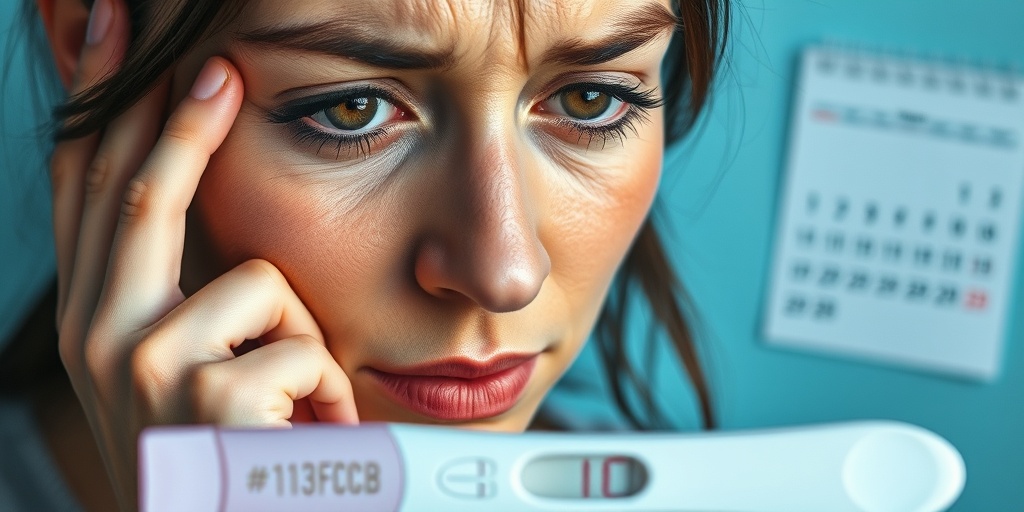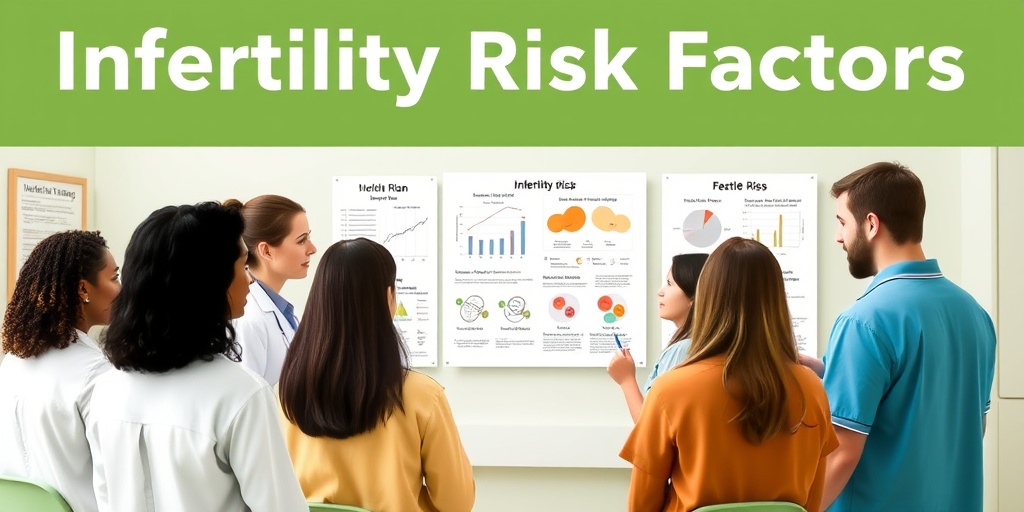What Is Infertility?
Infertility is a complex and often distressing condition that affects many couples worldwide. It is defined as the inability to conceive after one year of regular, unprotected sexual intercourse. For women over the age of 35, this timeframe is reduced to six months. Infertility can be attributed to various factors, affecting both men and women, and understanding these can be crucial for those seeking to expand their families.
Types of Infertility
Infertility can be categorized into two main types:
- Primary Infertility: This refers to couples who have never been able to conceive after a year of trying.
- Secondary Infertility: This occurs when a couple has previously conceived but is now unable to do so again.
Causes of Infertility
The causes of infertility can be multifaceted, involving a combination of physical, hormonal, and environmental factors. Here are some common causes:
- In Women: Conditions such as polycystic ovary syndrome (PCOS), endometriosis, and age-related factors can significantly impact fertility.
- In Men: Low sperm count, poor sperm motility, and hormonal imbalances are common issues that can lead to infertility.
- Other Factors: Lifestyle choices, such as smoking, excessive alcohol consumption, and obesity, can also play a role in fertility challenges.
Understanding the underlying causes of infertility is essential for couples seeking treatment options. If you suspect you may be experiencing infertility, consulting with a healthcare professional or a specialized infertility clinic can provide valuable insights and guidance.
Infertility Symptoms
Recognizing the symptoms of infertility is the first step toward seeking help. While infertility itself may not present obvious symptoms, certain signs can indicate underlying issues that may affect fertility.
Common Symptoms in Women
Women may experience various symptoms that could signal infertility, including:
- Irregular Menstrual Cycles: If your periods are inconsistent or absent, it may indicate hormonal imbalances affecting ovulation.
- Painful Periods: Severe pain during menstruation could be a sign of conditions like endometriosis.
- Changes in Weight: Significant weight gain or loss can impact hormonal balance and fertility.
- Pelvic Pain: Chronic pelvic pain may indicate underlying reproductive health issues.
Common Symptoms in Men
Men may also exhibit symptoms that could suggest infertility, such as:
- Changes in Sexual Function: Issues like erectile dysfunction or reduced libido can affect fertility.
- Pain or Swelling: Discomfort in the testicular area may indicate a medical condition impacting fertility.
- Changes in Hair Growth: Unusual hair loss or growth patterns can signal hormonal imbalances.
When to Seek Help
If you or your partner are experiencing any of these symptoms, it is essential to consult a healthcare provider. Early intervention can significantly improve the chances of successful treatment. Many couples find it helpful to seek support from resources like Yesil Health AI (yesilhealth.com), which offers evidence-based health answers and guidance on infertility.
Infertility can be a challenging journey, but understanding its meaning, symptoms, and potential causes can empower couples to take proactive steps toward achieving their family goals. Remember, you are not alone, and help is available! 🌟

Infertility Causes
Infertility is a complex issue that affects many couples trying to conceive. Understanding the causes of infertility is crucial for those facing challenges in their journey to parenthood. Infertility can be attributed to various factors, which can be broadly categorized into male and female causes.
Female Causes of Infertility
In women, infertility can stem from several physiological and hormonal issues. Here are some common causes:
- Ovulation Disorders: Conditions such as polycystic ovary syndrome (PCOS) and hormonal imbalances can disrupt ovulation, making it difficult to conceive.
- Fallopian Tube Damage: Blocked or damaged fallopian tubes can prevent sperm from reaching the egg or hinder the fertilized egg from reaching the uterus.
- Uterine Conditions: Abnormalities in the uterus, such as fibroids or polyps, can interfere with implantation or increase the risk of miscarriage.
- Age: As women age, particularly after 35, the quality and quantity of eggs decline, which can significantly impact fertility.
Male Causes of Infertility
Infertility is not solely a female issue; men can also face challenges. Common male infertility causes include:
- Low Sperm Count: A lower than normal sperm count can reduce the chances of fertilization.
- Sperm Motility Issues: If sperm cannot swim effectively, it may struggle to reach and fertilize the egg.
- Structural Problems: Conditions such as varicocele (enlarged veins in the scrotum) can affect sperm production and quality.
- Hormonal Imbalances: Issues with hormones that regulate sperm production can lead to infertility.
Other Contributing Factors
In addition to the above causes, several other factors can contribute to infertility:
- Genetic Factors: Genetic abnormalities can affect fertility in both men and women.
- Environmental Factors: Exposure to toxins, chemicals, and radiation can impact reproductive health.
- Lifestyle Choices: Smoking, excessive alcohol consumption, poor diet, and lack of exercise can all negatively affect fertility.
Infertility Risk Factors
Understanding the risk factors for infertility can help individuals and couples take proactive steps to improve their reproductive health. Here are some key risk factors to consider:
Age
Age is one of the most significant risk factors for infertility. Women over 35 and men over 40 may experience a decline in fertility. As women age, the quality of their eggs diminishes, while men may face decreased sperm quality and quantity.
Medical Conditions
Certain medical conditions can increase the risk of infertility:
- Endometriosis: This condition can cause painful periods and may lead to infertility by affecting the reproductive organs.
- Diabetes: Poorly managed diabetes can lead to hormonal imbalances that affect fertility.
- Thyroid Disorders: Both hyperthyroidism and hypothyroidism can disrupt menstrual cycles and ovulation.
Lifestyle Factors
Several lifestyle choices can also impact fertility:
- Obesity: Excess body weight can lead to hormonal imbalances that affect ovulation.
- Smoking: Tobacco use is linked to reduced fertility in both men and women.
- Alcohol Consumption: Heavy drinking can interfere with hormone levels and ovulation.
- Stress: High levels of stress can affect hormonal balance and ovulation.
Environmental Exposures
Exposure to certain environmental factors can also pose risks:
- Pesticides and Chemicals: Long-term exposure to certain chemicals can affect reproductive health.
- Radiation: Exposure to radiation can impact fertility and reproductive organs.
By being aware of these infertility risk factors, individuals and couples can make informed decisions about their reproductive health and seek appropriate medical advice when necessary. 🌱

Infertility Diagnosis
Infertility is a complex issue that affects many couples worldwide. Understanding how infertility is diagnosed is the first step toward finding a solution. The diagnosis process typically involves a series of tests and evaluations to determine the underlying causes of infertility.
What is Infertility?
Infertility is defined as the inability to conceive after one year of unprotected intercourse for women under 35, and after six months for women over 35. It can affect both men and women, and the causes can vary widely.
Initial Consultation
The journey to diagnosis often begins with an initial consultation with a healthcare provider. During this appointment, the doctor will:
- Review your medical history
- Discuss any previous pregnancies
- Evaluate lifestyle factors such as diet, exercise, and stress levels
Diagnostic Tests for Women
For women, several tests may be conducted to assess reproductive health:
- Blood Tests: These tests check hormone levels, including estrogen and progesterone, which are crucial for ovulation.
- Pelvic Exam: A physical examination to check for any abnormalities in the reproductive organs.
- Ultrasound: This imaging test helps visualize the ovaries and uterus to identify any structural issues.
- Hysterosalpingography (HSG): An X-ray procedure that examines the uterus and fallopian tubes for blockages.
Diagnostic Tests for Men
Men also undergo specific tests to determine fertility issues:
- Semen Analysis: This test evaluates the quantity and quality of sperm, including motility and morphology.
- Hormone Testing: Blood tests to check testosterone and other hormone levels that affect sperm production.
- Genetic Testing: In some cases, genetic tests may be recommended to identify any chromosomal abnormalities.
Understanding the Results
Once the tests are completed, your healthcare provider will discuss the results with you. Depending on the findings, they may recommend further testing or begin discussing treatment options. It’s essential to remember that infertility is a common issue, and many couples successfully conceive with the right support and treatment.
Infertility Treatment Options
After a thorough diagnosis, the next step is exploring the various infertility treatment options available. The right treatment will depend on the underlying cause of infertility, the age of the individuals involved, and their personal preferences.
Medications
For many couples, medications can be an effective first step in treating infertility:
- Ovulation Induction: Medications such as Clomiphene citrate (Clomid) or gonadotropins can help stimulate ovulation in women who have irregular cycles.
- Hormonal Treatments: Hormonal imbalances can be corrected with medications that help regulate the menstrual cycle and improve fertility.
Assisted Reproductive Technology (ART)
For couples facing more significant challenges, assisted reproductive technologies may be recommended:
- In Vitro Fertilization (IVF): This involves retrieving eggs and sperm and fertilizing them in a lab before transferring the embryo back into the uterus.
- Intracytoplasmic Sperm Injection (ICSI): A specialized form of IVF where a single sperm is injected directly into an egg.
- Intrauterine Insemination (IUI): Sperm is placed directly into the uterus during ovulation to increase the chances of fertilization.
Lifestyle Changes
Sometimes, simple lifestyle changes can significantly impact fertility:
- Healthy Diet: A balanced diet rich in fruits, vegetables, whole grains, and lean proteins can improve overall health and fertility.
- Regular Exercise: Maintaining a healthy weight through regular physical activity can enhance fertility in both men and women.
- Avoiding Tobacco and Alcohol: Reducing or eliminating these substances can improve reproductive health.
Emotional Support and Counseling
Infertility can be an emotionally challenging journey. Seeking support from counselors or support groups can be beneficial. Many couples find comfort in sharing their experiences and learning from others who are going through similar situations. 💕
In conclusion, understanding the diagnosis and treatment options for infertility is crucial for couples facing this challenge. With the right information and support, many couples can navigate their path to parenthood successfully.

Infertility and Lifestyle Changes
Infertility is a complex issue that affects many couples worldwide. It can be a challenging journey, but making certain lifestyle changes can significantly improve your chances of conception. In this section, we will explore how various lifestyle factors can influence fertility and what you can do to enhance your reproductive health.
Understanding Infertility
Before diving into lifestyle changes, it’s essential to understand what infertility means. Infertility is defined as the inability to conceive after one year of regular, unprotected intercourse. It can affect both men and women, and the causes can vary widely. Factors such as age, hormonal imbalances, and underlying health conditions can all play a role.
Key Lifestyle Changes to Consider
Making positive lifestyle changes can have a profound impact on your fertility. Here are some crucial areas to focus on:
- Nutrition: A balanced diet rich in fruits, vegetables, whole grains, and lean proteins can improve overall health and fertility. Consider incorporating foods high in antioxidants, such as berries and nuts, which can help combat oxidative stress.
- Weight Management: Maintaining a healthy weight is vital for reproductive health. Both underweight and overweight conditions can disrupt hormonal balance and affect ovulation.
- Exercise: Regular physical activity can help regulate hormones and improve fertility. Aim for at least 30 minutes of moderate exercise most days of the week. However, excessive exercise can have the opposite effect, so find a balance that works for you.
- Avoiding Toxins: Limit exposure to environmental toxins, such as pesticides and heavy metals, which can negatively impact fertility. Opt for organic produce when possible and use natural cleaning products.
- Stress Management: High stress levels can interfere with hormonal balance and ovulation. Consider practices like yoga, meditation, or deep-breathing exercises to help manage stress.
Specific Considerations for Men and Women
While lifestyle changes benefit everyone, there are specific considerations for men and women:
Infertility in Women
For women, factors such as age and hormonal health are crucial. Regular check-ups with a healthcare provider can help identify any underlying issues. Additionally, avoiding smoking and limiting alcohol intake can enhance fertility.
Infertility in Men
Men should also focus on lifestyle changes that promote reproductive health. This includes maintaining a healthy weight, avoiding excessive heat exposure (like hot tubs), and limiting alcohol and tobacco use. Nutritional supplements, such as zinc and vitamin C, may also support sperm health.
Infertility Support and Resources
Dealing with infertility can be an emotional rollercoaster. It’s essential to seek support and utilize available resources to navigate this challenging journey. Here are some avenues to consider:
Emotional Support
Connecting with others who are experiencing similar challenges can provide comfort and understanding. Consider joining support groups, either in-person or online, where you can share experiences and advice. Websites like Reddit have communities dedicated to infertility discussions, offering a platform for sharing stories and coping strategies.
Professional Help
Consulting with a fertility specialist can provide valuable insights into your specific situation. They can conduct tests to identify any underlying issues and recommend appropriate infertility treatments. Don’t hesitate to ask questions and discuss your concerns during these appointments.
Educational Resources
Knowledge is power when it comes to understanding infertility. Numerous books, articles, and online resources can help you learn more about the condition. Websites like the American Society for Reproductive Medicine (ASRM) offer comprehensive information on infertility, treatment options, and the latest research.
Local Clinics and Services
If you’re looking for hands-on support, searching for an infertility clinic near you can be a great start. Many clinics offer a range of services, from fertility assessments to advanced reproductive technologies. Don’t hesitate to reach out and schedule a consultation to discuss your options.
Remember, you are not alone in this journey. Seeking support and making informed decisions can empower you as you navigate the complexities of infertility. 🌼

Frequently Asked Questions about Infertility
What is infertility?
Infertility is defined as the inability to conceive after one year of unprotected intercourse. It can affect both men and women and may require medical evaluation to determine the underlying causes.
What are the common symptoms of infertility?
Symptoms of infertility can vary based on the individual and the underlying causes. Common signs include:
- Irregular menstrual cycles in women
- Changes in sexual desire
- Pain during intercourse
- Low sperm count or quality in men
What causes infertility in women?
Several factors can contribute to infertility in women, including:
- Hormonal imbalances
- Age-related factors
- Structural issues in the reproductive system
- Chronic health conditions
What causes infertility in men?
Infertility in men can be caused by various factors, such as:
- Low sperm production
- Sperm abnormalities
- Obstructions in the reproductive tract
- Health issues like diabetes or hormonal imbalances
What treatments are available for infertility?
There are several treatment options for infertility, including:
- Medications to regulate hormones
- Assisted reproductive technologies (ART) like IVF
- Surgery to correct anatomical issues
- Lifestyle changes to improve fertility
How can I find an infertility clinic near me?
To locate an infertility clinic near you, consider:
- Searching online for local clinics
- Asking your primary care physician for recommendations
- Checking reviews and ratings on health websites
What are the infertility rates?
Infertility rates can vary by region and demographic factors. On average, about 10-15% of couples experience infertility issues. Factors such as age, lifestyle, and health conditions can influence these rates.
Where can I find support for infertility?
Support for those dealing with infertility can be found through:
- Support groups and forums, such as those on Reddit
- Counseling services specializing in reproductive health
- Online communities and social media groups
What should I do if I suspect I am infertile?
If you suspect you may be experiencing infertility, it is important to:
- Consult with a healthcare provider for evaluation
- Discuss any symptoms or concerns you have
- Explore potential treatment options together
Can lifestyle changes improve fertility?
Yes! Making certain lifestyle changes can positively impact your fertility. Consider:
- Maintaining a healthy weight
- Eating a balanced diet rich in nutrients
- Avoiding smoking and excessive alcohol consumption
- Managing stress through relaxation techniques
Is infertility a common issue?
Infertility is a common issue affecting many couples. It is important to remember that you are not alone and that help is available.




